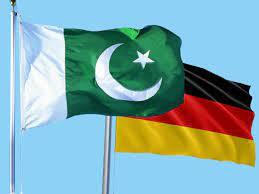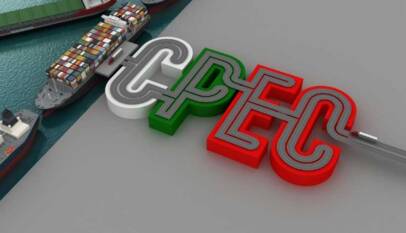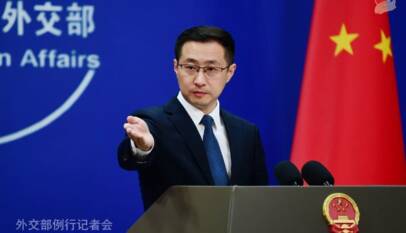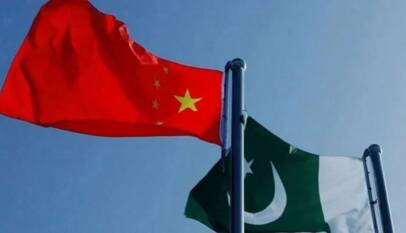CPEC to benefit from German involvement in the project
Shakeel Ramay, a political economist writes that as the Germany and Pakistan celebrate 70 years of bilateral relationship, there is potential of inviting Germany to join CPEC and gain numerous economic benefits from this. He highlights that if Germany joins the second phase of CPEC there will be much greater opportunities as it primarily focuses on industrialization. He highlights that since Germany is an industrial power and has an edge in the field of technology – China and Pakistan will be happy if Germany can join CPEC. He also goes on to highlight that Pakistan needs to improve the business environment, develop a marketing strategy for attracting the German investors, and also create special avenues for the engagement of Germany companies.
Pakistan and Germany have just celebrated 70 years of friendship. The relationship between the two countries has been built on the key pillars of economic, social, environment and cultural cooperation.
The visit of former president Ayub to Germany in 1961 gave the relationship new impetus, laying the foundation of close economic and industrial cooperation. The then West Germany was looking at Pakistan as an example of rapid economic and industrial development. Pakistan and Germany signed agreements to enhance cooperation. It is pertinent to highlight here that Pakistan was among the first countries to have signed an economic cooperation agreement with Germany. Since then, this cooperation has been going on well, relying on the principle of respect.
It is interesting to mention here that in 1963 Pakistan provided $25 million to Germany as a loan to tackle domestic issues. However, after that the balance started to reverse and Germany started to provide support to Pakistan. It has been estimated that since 1961, Germany has provided 3.8 billion euros to Pakistan for social and economic development. The major areas of cooperation are renewable energy, vocational training, governance and social development.
Although all areas of cooperation are important, vocational training and climate stand out among all. At the moment, Germany in collaboration and support with Norway and the European Union is implementing a vocational training programme in Pakistan. The major objectives of the programme are promotion of employment, improvement of labour, social and environmental standards. The programme is a huge success, with more than 100 career advice centers established. Germany has also assisted Pakistan with standardised professions courses. Moreover, 8500 vocational teachers have been trained through e-learning centers.
Now the focus of the programme is policy development, engagement with the private sector, implementation of the reformed vocational training system, human resource development and teacher training. German Statutory Accident Insurance also is providing training to labour inspectors in Punjab to improve working conditions, especially in the textile sector.
Germany is also assisting Pakistan in green transition and has enhanced cooperation regarding climate change. Germany and Pakistan have signed an agreement of 150 million euros to strengthen cooperation in areas of nature bond solution, electric vehicle and renewable energy etc.
Germany is a major partner of Pakistan in the European Union. In 2020, the total export of Pakistan to Germany was $1.4 billion and import was $1.2 billion. Ninety German companies are also working in Pakistan, assisting Pakistan with development and technological advancement. Germany has also suspended Pakistan’s debt worth 26.23 million euros under the Debt Service Suspension Initiative.
The Goethe Institute in Karachi and the Annemarie Schimmel Haus in Lahore are working to further strengthen the people-people and cultural relationship. More than 5000 students are studying in Germany and some German students are also studying in Pakistan. Pakistan also has a sizable diaspora in Germany.
The two countries also have tremendous potential to further strengthen bilateral relations. Realizing the importance and the potential, both countries have initiated the Pak-German Strategic Dialogue. Since 2011, Pakistan and Germany have organised five rounds of dialogue. Most recently, Pakistan has also offered Germany to join the China-Pakistan Economic Corridor (CPEC). The second phase of CPEC puts special focus on industrialisation. Pakistan is also busy establishing special economic zones to foster the process of industrialisation. Pakistan and China are inviting third countries to join and benefit from the industrialisation process. And it is a well established fact that Germany is now a formidable industrial power and has an edge in the field of technology – which is why China and Pakistan will be happy if Germany can join the CPEC.
Germany is in a unique position to benefit from CPEC. Historically, Germany has had a close relationship with China and Pakistan. According to the latest statistics, 5000 German companies are working in China. The list includes Volkswagen, Daimler and Mercedes, industrial giant Siemens, chemical producer BASF and Deutsche Bank. So, building on past experience with China and Pakistan, German companies can venture into CPEC.
Germany can immensely benefit by joining CPEC and using the route for trade with China and Afghanistan. The Gwadar Port can act as a transit port for trade with China and Afghanistan. The Gwadar Port and the CPEC route have a comparative advantage over the existing routes. For example, through the existing route it takes 50 days for containers to reach Germany from China. However, if Germany trades through the Gwadar Port and uses the CPEC route it will take only 29 days and 21 days will be saved. On the cost side, the cost per container is $4117 by using the existing route. By using CPEC the cost would be $2760, helping save $1357 on per container. Based on these figures, the Gwadar Port and CPEC route can help Germany save substantial financial resources by keeping in mind the total volume of trade. According to official statistics, the total trade between China and Germany was $244.87 billion in 2020.
However, there are a few things on which Pakistan will have to work to attract German companies. First of all, there is a need to improve the business environment. Pakistan will have to create an environment which can facilitate companies and is obstacle free. Second, Pakistan will have to devise a good marketing strategy based on facts and figures, to market the special economic zones (SEZs) of CPEC to German companies. For that purpose, Pakistan needs to present a comparison of its SEZs with other economic zones of the world. The comparison will help German companies decide on the basis of facts and figures.
Third, Pakistan can create special avenues for the engagement of German companies. For that purpose, Pakistan in collaboration with China can establish a trilateral business forum in collaboration with German companies. It will be a good experience to work through the business community.
In conclusion, Pakistan and Germany can enhance cooperation in the field of training and skill development, especially in modern technologies. It is needed at this time because the world is entering the fourth industrial revolution. This will also assist both countries in strengthening relations in the coming years.
Chinese Ambassador highlights significance of Third Plenary Session for China-Pakistan cooperation
The Third Plenary Session of the 20th Central Committee of the Communist Party of China ha…












